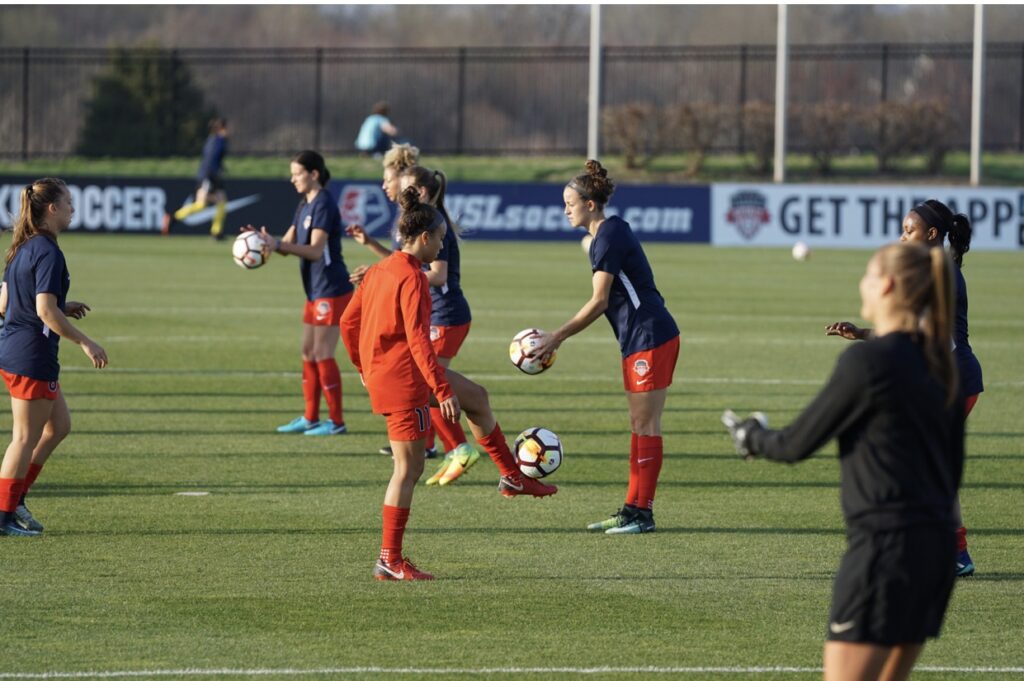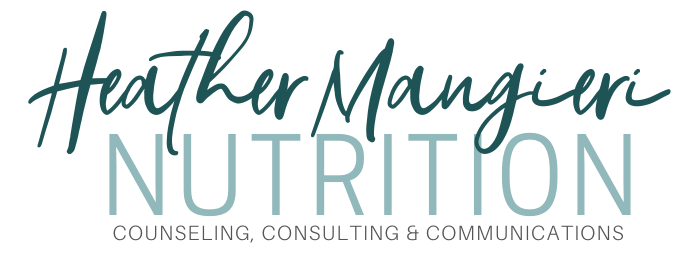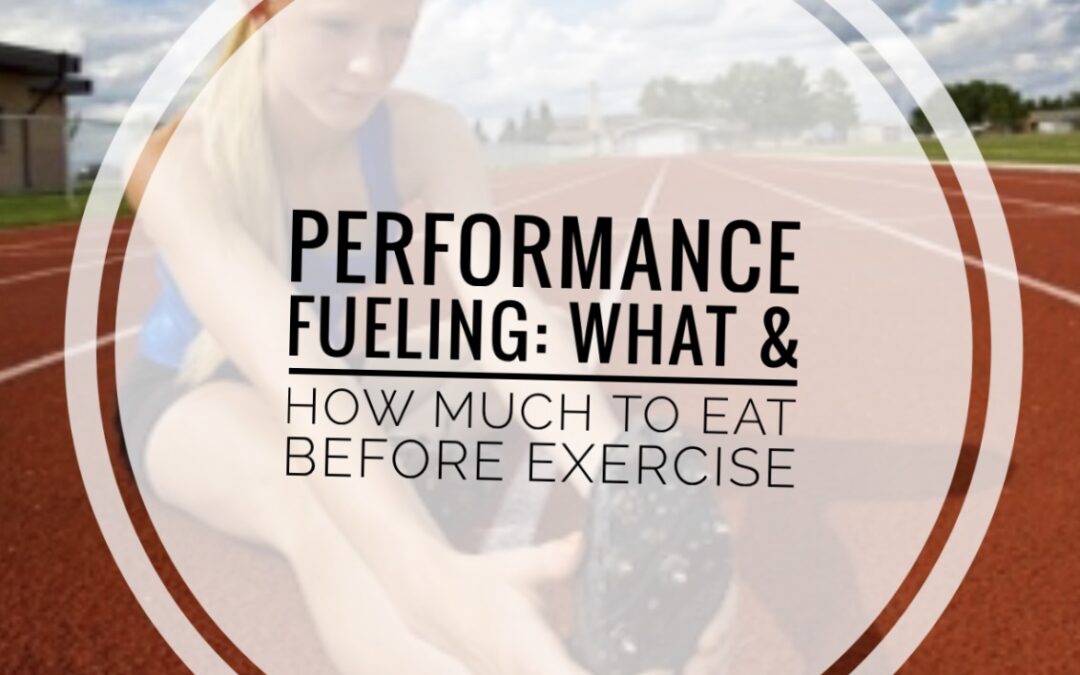A pre-workout meal or snack is key to having a high-quality training session, but what and how much you should eat depends on your goals, exercise intensity and duration, timing and level of training. Here’s what you need to know about eating before exercise.
Disclosure: This post contains some affiliate links. If you click on the link and make a purchase, I may earn a commission at no extra cost to you. You can review my full disclosure policy here.

“Should I eat before I work out?”
“What should I eat before I train?
Those are two of the most common questions that I get from athletes. They might seem like straightforward questions, but the answer isn’t as simple as you might think. There’s some science to performance fueling. If you’re training to win, then make sure you’re eating to win, too.
Should You Eat Before Training or Exercise?
Let’s start by answering this question – should you eat before exercise? In order to answer that properly, you need to consider a few things. For one, what is your goal? What type of exercise will you be doing? What’s the intensity of your workout? And, what’s your personal level of training?
In the world of sports nutrition, pre-workout fueling advice is often misinterpreted and over-simplified. It’s unfortunate, since different strategies are needed to get different results. What a runner needs before a 30 minute jog outside is considerably different from what a competitive athlete needs before their training. If you’re focused on losing weight or burning body fat, eating before a 30 minute morning run isn’t as critical. If your run will be 12 miles, however, that’s a different story. The duration and intensity of exercise matters just as much as your purpose and goal. If you’re looking for a performance gain or a high-quality training session, eating before activity is key.
For competitive athletes, a pre-workout meal is a must for a few reasons. For one, eating carbohydrate rich foods helps to restore liver glycogen stores after an over-night fast. That’s one of the main reasons I always stress eating breakfast. That morning meal also tops off muscle glycogen stores, prevents you from getting hungry during your training and fuels your mental focus as you train.
The bottom line is, if you are training to improve your performance – get faster, stronger or improve endurance – then give your body the fuel it needs to perform. Just make sure it’s the right fuel, at the right time!
What Should You Eat Before Training or Exercise?
That brings us to the next questions – What should you eat before exercise? As with the above question, the answer isn’t as simple as it might seem.
There are some general guidelines for what nutrients to include, and what you should avoid, in your pre-workout meal.
Carbohydrates
For sure, your pre-workout meal should include carbohydrates. They supply an energy source for your training, and help to maximize your muscle glycogen stores. Some good pre-exercise carbohydrate options are whole-grain breads, tortillas, rice, cereals and fruits.
Protein
The pre-meal event should contain a small to moderate amount of protein, too. Some good, quick options are eggs, turkey or ham, milk, Greek yogurt, a protein smoothie, or a protein bar
Fat And Fiber
Keep your pre-workout meal low in both fat and fiber. Both nutrients take longer to digest, which can cause fullness and gastrointestinal (GI) issues such as nausea, bloating, cramping or general discomfort. A spread of peanut butter on a piece of toast isn’t a problem, but avoid large portions of nuts, seeds, butter, nut butter or tail mix. And, choose lower fiber fruits like bananas, peaches or canned fruits.
Hydrating Foods
Starting exercise well hydrated is key to feeling and performing your best. Incorporating hydrating foods into your pre-workout meal is a great way to add more fluid. A few good options are fruits, vegetables, smoothies and yogurt.
Salty Foods
Eating salty foods as part of your pre-workout meal can help off-set sodium losses that occur from sweating. Especially before longer duration training or practice sessions, or when exercising in the extreme conditions. If you know you are a heavy or salty sweaters, it’s particularly important to focus on sodium. Foods like chicken broth, pickles, olives or pretzels as part of your pre-workout meal can help.

How Much Should You Eat Before Training Or Exercise?
The amount of food you eat before you exercise is just as important as what you eat. That goes for carbohydrates, protein and dietary fats. The most important consideration is how much time you have before you start.
Most athletes don’t like to exercise with a belly full of food, nor do I recommend it. That’s why it’s important to consider how much time you have between eating and starting exercise. You need enough time to digest, absorb and metabolize the food before you start your training or exercise session. The more time you have, the more you can eat. But, the less time you have, the less you should eat.
The intensity of your workout should also be factored in. The higher the intensity, the more time you need for digestion. You do not want to be doing high intensity exercise with food in your stomach.
The amount of food you eat will also vary based on our individual needs. Everyone is different when it comes to the types of food tolerated before exercise. Make sure to practice pre-workout fueling strategies in advance, so that you know what works for you.
Sample Pre-Workout Meal & Snack Ideas Based On Meal Timing
Three – Four (3-4) Hours Before Training or Exercise
Eating three to four hours prior to exercise gives enough time for your body to digest, absorb and metabolize your food. Eat a healthy, balanced breakfast that includes a combination of complex carbohydrates, high-quality protein and some fat. Examples include:
- 2 frozen waffles with syrup, one egg, a serving of fruit and water or milk.
- An egg sandwich – 2 eggs, 2 pieces of toast with butter, a slice of ham and water or milk
- A bowl of cereal with milk, a piece of fruit and a glass of milk or water
- A balanced smoothie
- Greek yogurt with fruit, a piece of toast with nut butter and jelly and a glass of milk or water
- Turkey Sandwich on two pieces of bread and a banana
One and A Half To Two (1.5-2) Hours Before Exercise
As you get closer to your exercise session, the amount of food you eat should decrease, but the composition of the meal can remain the same. Notice in the examples that I share that the foods are similar, but the total amount of food is decrease.
- 1/2 turkey sandwich with ½ banana and water
- A bowl of cereal with milk and water
- 1 frozen waffle with syrup, clementine, 1 egg and water
- 1 egg, 1 slice of toast and a banana with water
- Flavored Greek yogurt topped with fresh fruit and water
- A small smoothie made with flavored yogurt, milk and fruit
30 minutes to Immediately Before Exercise Or Training
While having a balanced meal 3-4 hours prior to exercise is ideal, it’s not always possible. This is commonly the case for athletes that have very early morning practice, or those that go directly from school/work to practice. Even if you do eat a meal 3-4 hours before exercise, a small carbohydrate snack ~30 minutes prior to exercise or training can help top off your glycogen stores. In this case, it’s important to focus on simple, quick digesting carbohydrates that will move quickly through the gastrointestinal tract. If you know your stomach can’t handle solid food before a workout, opt for liquid fuel. The following are a few examples.
- A banana
- A piece of toast with jelly
- Two flavored rice cakes
- An orange
- A sports drink
- A small fig bar
Remember that we all need different amounts of food. If you need help determining your own individual needs, consider consulting a one-on-one consultation with a sports dietitian. I share more tips on pre-workout eating, as well as what to eat during and after exercise, in my book, Fueling Young Athletes.
Do you have a favorite pre-workout meal or snack?


 Hi, I’m Heather – a registered dietitian, busy mom, consultant, adventure junkie and travel addict who has mastered living healthy on the go. My blog is where I share simple recipes and healthy living tips to help and inspire others to live their best life.
Hi, I’m Heather – a registered dietitian, busy mom, consultant, adventure junkie and travel addict who has mastered living healthy on the go. My blog is where I share simple recipes and healthy living tips to help and inspire others to live their best life.
This article is so informative. Lots of ideas for my teenage son who plays soccer. Thank you.